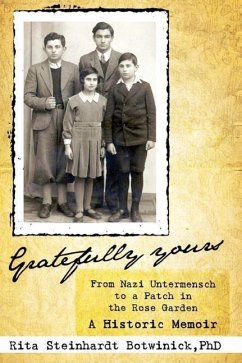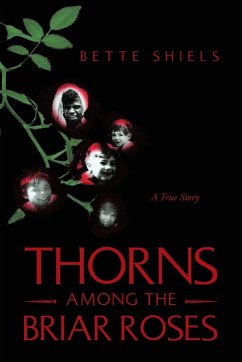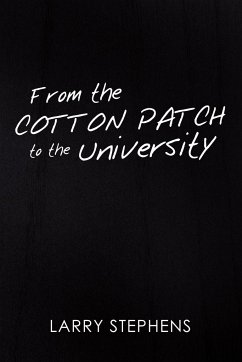
At Home in the Briar Patch
Versandkostenfrei!
Versandfertig in über 4 Wochen
12,99 €
inkl. MwSt.

PAYBACK Punkte
6 °P sammeln!
Most of the author's extended family members are South Carolinians. Yet she grew up and attended college in North Carolina (Duke University), and afterwards she moved to Connecticut for her graduate degree (Yale University) and her college teaching career at Fairfield University. In mid-life, she began to hear the opinion that "slavery is America's original sin". That was when she learned belatedly, from a cousin, that her ancestors in South Carolina- both maternal and paternal - had indeed owned slaves. both startled and connected, she set about to research the history of her mother's family....
Most of the author's extended family members are South Carolinians. Yet she grew up and attended college in North Carolina (Duke University), and afterwards she moved to Connecticut for her graduate degree (Yale University) and her college teaching career at Fairfield University. In mid-life, she began to hear the opinion that "slavery is America's original sin". That was when she learned belatedly, from a cousin, that her ancestors in South Carolina- both maternal and paternal - had indeed owned slaves. both startled and connected, she set about to research the history of her mother's family. For several decades she explored her family's ancestral records, relevant church histories, public documents, private letters, and the extensive scholarship about the phenomenon of slavery in America. More important, she began a series of visits to her South Carolina relatives, who had lived through a wide range of opinions about race relationships and slavery. The ensuing discussions about family history were crucial to her journey of discovery. In exploring her own family's experience with race and slavery, she found that common stereotypes are not the rule. There were no Simon LeGree cruel-slaveholder figures like those who still populate our films, nor the widespread fear of black people which many believe to be a legacy of slavery. Only rarely did she find the too-sweet condescension that at times marks the attitude of whites toward blacks these days. She learned that in the matter of race relationships, reality can grow past common expectations and become more variable and more surprising. She learned that the racial traumas of our country's past may be evolving to become more manageable, more familiar, and even calmer. Our country's briar-patch tangle of race, aggravated by the traumatic history of slavery, may be evolving to become more "at home". Less dangerous, more understandable, and more realistic. That would be a desirable goal. Certainly, we cannot declare victory over racial strife, but we can embrace hope.














